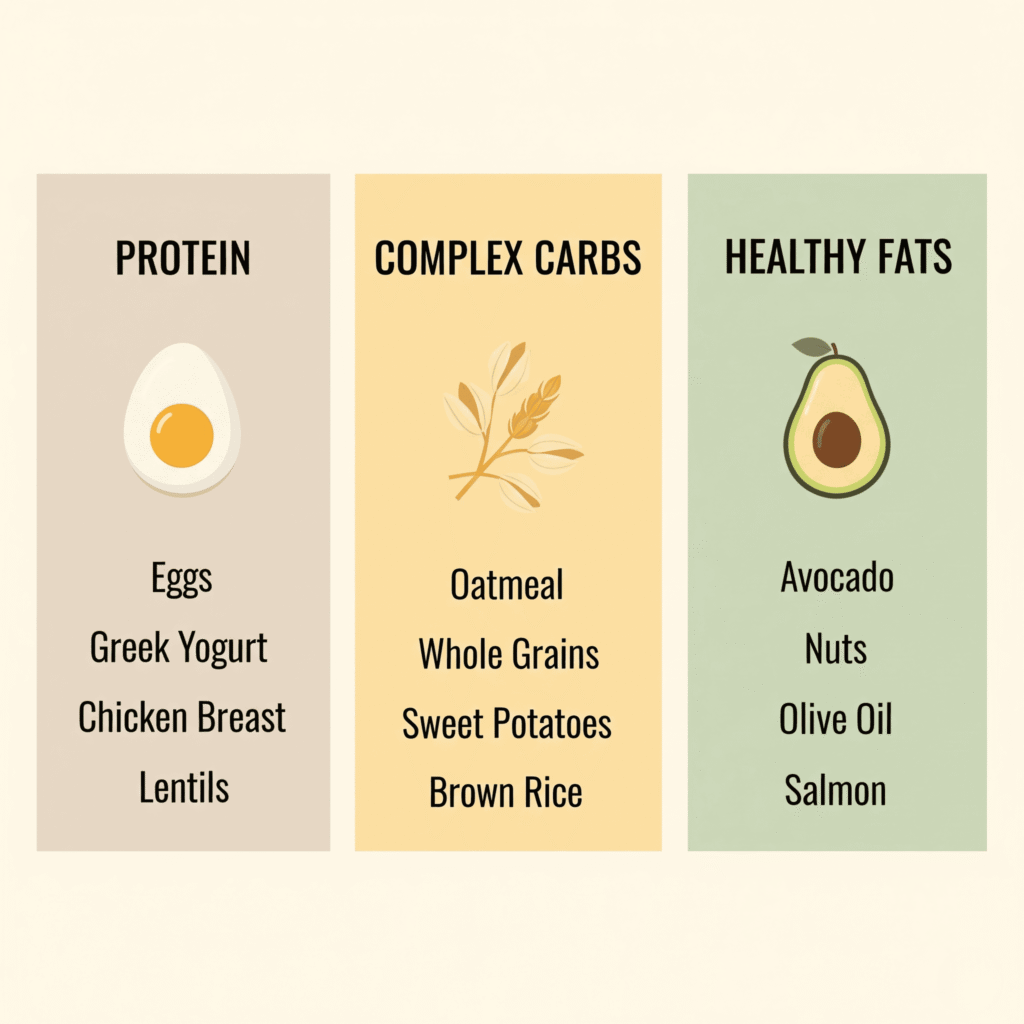Do your mornings feel like a frantic race against the clock? The hours between waking up and starting work are often lost to groggy snoozing, reactive email checking, and decision fatigue before the day has even begun. But what if you could transform that time into your biggest strategic advantage? The truth is, how you spend your first few hours can predict the productivity of your entire day.
This isn’t about forcing yourself into a rigid, 5 AM schedule. It’s about building a morning routine that works with your biology, not against it. By following a few science-backed principles, you can prime your body and brain for peak performance, focus, and stability. Here are seven steps to architect a morning that sets you up for success.
1. Master Your Wake-Up (The Right Way)
The first decision of the day is often the most important: when and how you wake up. The key isn’t waking up brutally early, but waking up consistently. Your ideal wake-up time is genetically determined by your chronotype (whether you’re a natural “lark” or “owl”). Forcing yourself into a schedule that fights your biology can lead to “social jet lag” and undermine performance. The real goal is to stabilize your body’s internal clock, or circadian rhythm, with a consistent wake-up time, even on weekends.
Once the alarm sounds, your worst enemy is the snooze button. Pressing it fragments your sleep and triggers a state of cognitive impairment known as sleep inertia, leaving you in a mental fog that can last for hours. To beat it, try placing your alarm across the room or using the “Five-Second Rule”: when the alarm goes off, count to five and physically get out of bed. Winning this first battle of the day builds a sense of self-efficacy and creates a positive ripple effect.
Key Takeaway: Ditch the snooze button. Focus on a consistent wake-up time that honors your natural chronotype to avoid mental fog and start your day with a win.
2. Activate Your System with Sunlight and Water
Once you’re out of bed, your next priority is to send clear “wake up” signals to your brain. Two of the most powerful tools are sunlight and water. Exposing your eyes to direct sunlight for 5-20 minutes within the first hour of waking triggers a healthy spike in the energy hormone cortisol and suppresses the sleep hormone melatonin. This simple act sets your internal clock for the day and even improves sleep quality that night.
At the same time, your body is naturally dehydrated after a long sleep. Since the brain is 80-85% water, rehydrating is critical for cognitive function. A study showed that drinking water on an empty stomach can boost your metabolic rate by up to 30% for the next hour. Before you even think about coffee, drink a large glass of water to re-activate your system and clear away mental cobwebs.

Key Takeaway: Within the first hour of waking, get 5-20 minutes of sunlight and drink a large glass of water before coffee to naturally boost alertness and cognitive function.
3. Initiate Movement to Energize Your Brain
Morning exercise isn’t just for physical fitness; it’s a direct intervention for your brain. Physical activity increases blood flow and oxygen to the brain, providing an immediate boost in alertness. More importantly, it stimulates the production of BDNF, a protein often called “Miracle-Gro for the brain” that is critical for learning, memory, and focus. Research has shown that even a single session of moderate-intensity exercise can improve executive functions for the rest of the day.
You don’t need a full hour at the gym. A 15-minute brisk walk outside (which stacks with your sunlight habit!), a quick 20-minute HIIT session, or 10 minutes of yoga can be incredibly effective. The goal is to choose a form of movement that fits your schedule and energy levels to kickstart the release of feel-good endorphins and set a positive tone for the day.
Key Takeaway: Incorporate 10-20 minutes of movement, from a brisk walk to a HIIT workout, to boost brain-derived neurotrophic factor (BDNF) for better focus and memory.
4. Fuel Your Focus with a High-Performance Breakfast
While you’ve been told breakfast is the most important meal of the day, the quality of that breakfast is what truly matters for productivity. A meal high in sugar and simple carbs will cause a blood sugar spike and a subsequent crash, leaving you tired and unfocused. To maintain stable energy, build your breakfast around protein, complex carbs, and healthy fats.
Protein is especially critical, as its amino acids are the building blocks for key neurotransmitters that regulate focus and mood. A breakfast of eggs or Greek yogurt, paired with complex carbs like oatmeal, provides a sustained, steady release of glucose—the brain’s primary fuel. This is backed by fMRI studies, which show that a balanced breakfast leads to significantly higher activation in the brain’s prefrontal cortex, the hub for executive function.

Key Takeaway: Eat a breakfast rich in protein and complex carbs (like eggs and oatmeal) to stabilize blood sugar and fuel your brain for sustained focus.
5. Practice Intentional Stillness to Tame Your Mind
In a world of constant notifications and distractions, proactively cultivating calm is a superpower. Practices like meditation and journaling help quiet the mind’s background noise—often called the “monkey mind”—by reducing activity in the brain’s Default Mode Network. This strengthens your ability to focus and helps you shift from a reactive to a proactive state.
You don’t need to meditate for an hour. Starting with just five minutes of guided meditation or journaling can significantly improve emotional regulation and focus. One simple technique is to write “morning pages”—a stream-of-consciousness brain dump to clear mental clutter before your day begins. Another is to simply identify three things you are grateful for. This builds a positive mindset to buffer against daily challenges.
Key Takeaway: Spend 5-10 minutes in quiet reflection, meditation, or journaling to reduce mental clutter and strengthen your brain’s capacity for deep focus.
6. Architect Your Day to Reduce Decision Fatigue
A key part of a successful morning routine is creating a plan for the day ahead. Our brains have a finite amount of mental energy for decision-making. By planning your day in advance, you “pre-decide” your actions, which conserves that valuable energy for your most important work. As one study noted, you are 42% more likely to follow through on a plan if you write it down.
A powerful method is to “Eat That Frog,” a concept that involves tackling your most important and challenging task first. Completing this “frog” builds incredible momentum and creates a sense of accomplishment that makes every other task seem easier. Before you start work, identify your 1-3 “Most Important Tasks” (MITs) for the day to ensure your energy is directed toward what truly matters. Explore powerful prioritization frameworks like the Eisenhower Matrix to help you decide.
Key Takeaway: Before starting work, write down your 1-3 Most Important Tasks and commit to tackling the biggest one first. This preserves mental energy and builds unstoppable momentum.
7. Choose Deep Learning Over Digital Distraction
The first input you consume in the morning sets the tone for your cognitive state. Mindlessly scrolling through email or news alerts immediately puts your brain into a reactive, defensive posture, priming it for a day of fractured attention. This is a “cognitively expensive” way to start your day.
Instead, be proactive. Choose to engage with deep, focused material like a book or a long-form industry article. Reading is an active cognitive process that builds concentration and mental nimbleness. While listening to podcasts is also a great option, fMRI studies suggest that the self-paced nature of reading allows for deeper comprehension. By consciously choosing high-quality input, you prime your brain for proactive problem-solving and creative work, not reactive stress.
Key Takeaway: Start your first work block with focused, proactive input like reading a book instead of reactive input like checking email. This cultivates a mindset for deep work.
Conclusion: Design Your Day, Transform Your Life
Building the perfect morning routine doesn’t happen overnight. The key is to start small, stay consistent, and create a system that energizes you. Instead of overhauling your entire morning tomorrow, pick just one or two of these habits to implement.
Here are three simple actions you can start with:
- No Snooze & Hydrate: The moment your alarm goes off, get up and drink a glass of water.
- Five Minutes of Sunlight: Step outside for five minutes while that water kicks in.
- Define One Task: Before opening your email, write down your single most important task for the day.
By taking control of your mornings, you take control of your day. This consistent investment in your well-being and focus is the ultimate foundation for long-term success and a powerful defense against burnout.
What does your morning routine look like? Share one habit that has made the biggest difference for you in the comments below!




